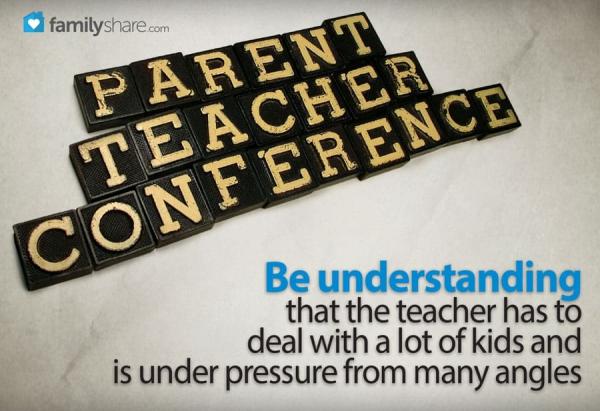
Going to school is all about asking questions. The teacher asks them, and so do the students. Asking questions is a great way to teach and to learn, after all. So when it's time for parent-teacher conferences, here are some key questions you can ask the teacher, to help you get the most out of your appointment and equip you to be a better support to your student.
Many of these questions will be covered in the course of a typical conference. Don't worry. Just mentally check them off as you go through them, and use this list to help fill in any gaps.
-
What skills and knowledge will my child be expected to master this year? What are the standards, and how will we know if my child is meeting them?
-
How will my child be evaluated? What information is used? How are grades determined, and what grading system do you use? (Ask to have the grading system explained if necessary.)
-
What can I do at home to help be involved? Do you have a system for parents to know what homework is assigned?
-
What do you see as my child's strengths/weaknesses?
-
How is my child doing socially? Do they seem to have friends and get along with the other students? Does my child seem happy overall?
-
Does my child behave respectfully to you? Do they follow class rules? Are they polite and kind?
-
Does my child work up to their potential? Are they doing their best?
-
Does my child turn in assignments on time, and stay on task for the most part?
-
Does my child speak up or ask questions during class? Do they ask for help if they are confused or unsure?
-
What's our action plan for this coming term? What goals should we set for work at school, along with homework?
This is also your opportunity to clarify how available you are to help, whether for class parties, chaperoning or coming into the classroom. The teacher understands that parents have a variety of situations, with work, younger siblings, and so on. Some will be able to help in the classroom a lot, some not at all.
If your child has told you something the teacher does that concerns you, do bring it up. But phrase your words carefully: Not in an accusatory way, but in an information-gathering way. Realize that kids sometime play adults off one another. Be understanding that the teacher has to deal with a lot of kids and is under pressure from many angles.
Remember that if you are concerned about any aspect of the classroom, you don't have to wait for a scheduled parent teacher conference to talk to the teacher. Most teachers are very open to discussing things with you at all times of the year. Keep in communication after finding out the preferred method of contact: Is email easier, or a phone call?
Most teachers are caring individuals who truly want the best for your child. But they need help from home for the best outcome. Use the parent teacher conference and other communications to help provide the best support for the teacher and for the student.

